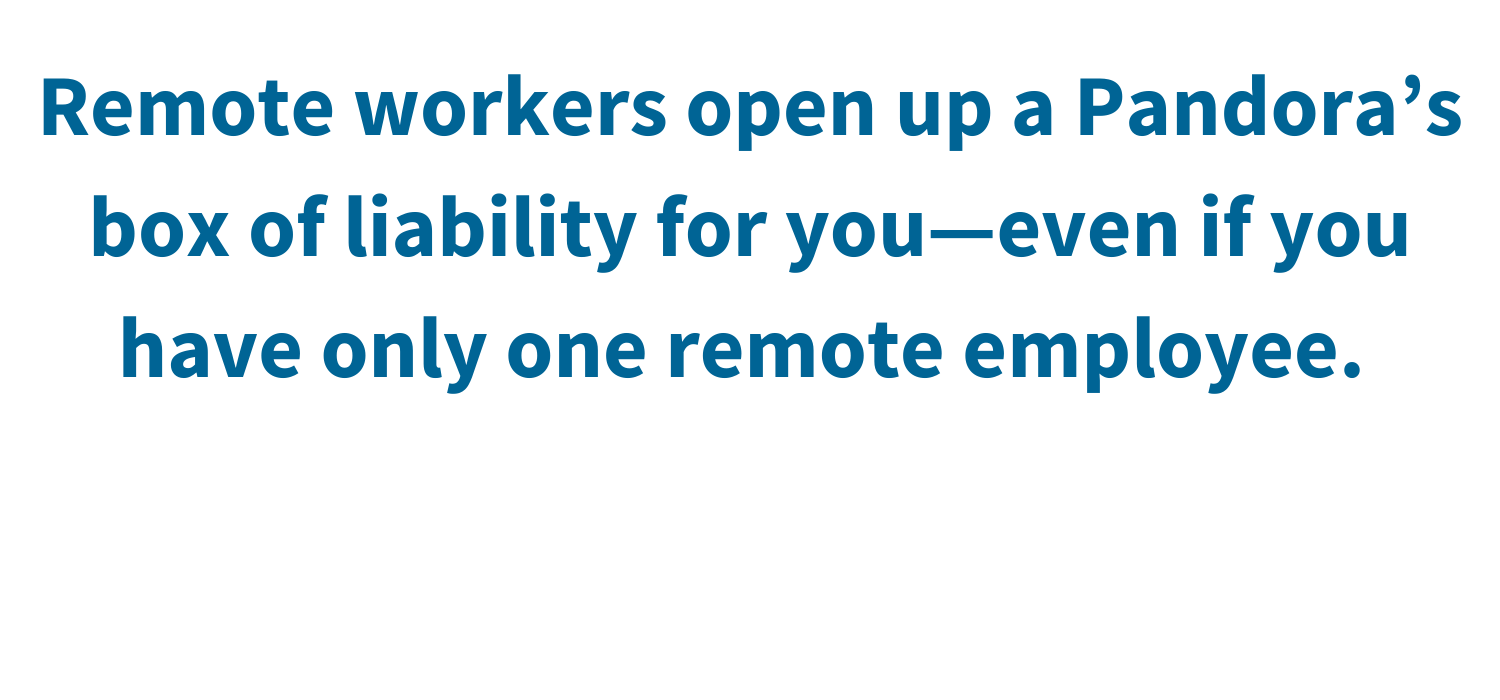

Payroll Compliance for Remote Employees:
Managing the New Risks
During this 75-minute training, you’ll learn how to:

Avoid paying additional state taxes.
Learn how to apply the concepts of nexus, domicile, and residency to your remote workers.

Identify your unemployment requirements.
Determine in which states you owe unemployment contributions.

Prevent pay penalties.
Understand how to avoid fines and penalties from state tax agencies.
You may be liable for state taxes – even if you only have one employee there
Trudging to the office is so … 2019. These days, your employees are likely working from anywhere and everywhere. But having employees working from different states can trigger unintended payroll liabilities in states far from your corporate offices.
Even if employees work only one or two days a week from home in different states, you could be liable to pay taxes in those states. And one tax liability usually leads to a host of others. Depending on state rules, you could also be on the hook for corporate, excise and unemployment taxes. State minimum wage and wage payment laws present another surprise liability.
Don’t get caught unprepared and out of compliance. States, like the IRS, are unforgiving.
In this webinar recording, you’ll learn the ins and outs of labor and tax laws when dealing with remote workers. Discover how to track remote employees' time, comply with new payroll laws and avoid penalties for failing to pay employees properly. Learn what you need to know now to avoid surprises and fines later.
Agenda for Payroll Compliance for Remote Employees
- Use nexus, domicile and residency to your company's advantage. Those key concepts could get your organization off the hook for personal and corporate income taxes in some states.
- Get in total compliance for remote payroll. Learn the 10 factors that determine if you owe taxes for remote workers in their home state.
- Learn the best strategies for tracking remote employees’ work time. If remote employees are nonexempt, you need a sure-fire way to track their time.
- Discover the best way to pay. While electronic pay options (like direct deposit) are optimal for employees who aren’t in the office, state laws can throw up a huge hurdle.
- Find out if you are liable for unemployment coverage. State unemployment taxes can be tricky. Learn the four tests to see if you must pay up.
- The advantages and pitfalls of reciprocity and "courtesy withholding.” In some states you can withhold income taxes for employees' states of residence. But it could also open your company to a full array of state taxes.
Alice Gilman, Esq., is an expert in payroll and tax compliance who has covered payroll issues for more than 26 years. She's written and edited several leading payroll publications, including Payroll Legal Alert, the Research Institute of America's Payroll Guide, the American Payroll Association's Basic Guide to Payroll and the Payroll Manager's Letter.
Alice Gilman esquire and author
View a free clip:
Professional Certification Credit Hours Included:

This program is valid for 1.25 PDCs for the SHRM-CP® or SHRM-SCP®.
The use of this official seal confirms that this Activity has met HR Certification Institute’s® (HRCI®) criteria for recertification credit pre-approval.

We promise you'll be satisfied.
If Payroll Compliance for Remote Employees fails to meet your needs, we will refund every penny you paid – no hassles, no questions asked.
